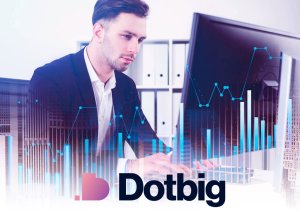Applying big data to risk management: Technological overview, trading surveillance and fraud management – Part 4
Part 4 of our Applying Big Data to Risk Management series. Click here for the full series. This is a guest research article by Kieron Yorke, Director of Financial Sales Services at SinusIridum This is an area where I have extensive experience and have consulted on a number issues relating to several Tier1 banks who have been ‘hit’ […]

Part 4 of our Applying Big Data to Risk Management series. Click here for the full series.
This is a guest research article by Kieron Yorke, Director of Financial Sales Services at SinusIridum
This is an area where I have extensive experience and have consulted on a number issues relating to several Tier1 banks who have been ‘hit’ with huge fines for trading impropriety and manipulating the inter-banking interest rates. It’s an area I know well.
Fraud costs banks billions. High- profile rogue trading scandals – such as those caused by Kweku Adaboli and Jerome Kerviel – have dominated press coverage in recent years, and resulted in staggering fines.
These cases can wreak havoc on the financial system as a whole – Nick Leeson’s fraudulent speculative trading caused the catastrophic collapse of an entire bank. Six banks were recently fined $4.3bn following the global forex probe, reflecting a ‘failure to improve their controls in the wake of Libor.
Traditional approaches are proving cumbersome and slow in identifying fraud.
The traditional Operational Risk team approach to catching rogue traders is to manually track Dealer and Operations staff actions that could manipulate positions, and profit and loss.
However, fraudsters now utilise a range of technologies and strategies, like the private chat rooms used in the recent FX scandal. New data lake technologies have the benefit of collecting data from any imaginable source, including not only trading systems, email, social media and mobile data, but also HR systems, door swipe card activity, and computer access log files.
The result is a fully comprehensive, integrated approach to data analysis that can detect fraud before the damage has hit disastrous levels.
While Big Data can help us improve our reactive and predictive capabilities, it also presents exciting new possibilities for addressing risk in the present. Recent developments in cognitive technology will enable Big Data technologies to make reasoned, informed decisions in real time, defending markets against vulnerability to shocks.
For example, the intertwining of Twitter and Wall Street has led to some disastrous incidents: last year, a false tweet from Associated Press – that the White House had been hit by explosions – sent markets into free fall. Cognitive programs, like IBM’s Watson, can be used to address this type of risk.
Mr. Watson has the cognitive capacity to analyse unstructured data – like social media feeds – and make an immediate, rational assessment of risk. In this case, the fact that the report came from Twitter would have prompted triggers that it should be viewed with caution – not immediately set off a chain of catastrophic market reactions.
New technological developments can be daunting. However, Big Data technologies are already proving safe, effective, and value-adding. Developing at an exponential rate, Big Data technologies are fast becoming standard practice in many industries – from online shopping to medical research. Big Data is already making an impact in financial services, particularly in the Marketing and online Retail banking areas.
The transition need not, therefore, be overwhelming.
Adopting Big Data technology doesn’t require a complete IT system overhaul. In the near future, I expect banks will continue to utilise their existing relational databases and data warehouses – these remain essential for complying with the increased regulatory reporting requirements. However, I see these capabilities greatly enhanced by Big Data functionality.
For example, the open source software project, Hadoop Ecosystem, can add significant value to existing traditional systems, databases and data marts by mapping sourced data and aggregating results. (As can my own present company using our ‘Uncertainty- Engine’).
Hadoop can act as a One-Stop- Shop for enterprise data (shared data across an organisation), to create a data lake, leaving the data in its original form by integrating with the data warehouse through ‘middle ware’ connectors. The approach allows teams to ‘connect the dots’ across the enterprise data, enabling analytics not possible through traditional means.
This flexibility can lead to surprising discoveries: instead of asking pre- defined questions, the data lake allows the user to be guided by the data, and observe patterns and relationships across a variety of data forms. When used to its full potential, Big Data can provide answers to questions that did not exist at the start.
The latest technologies will require team members with new skills.









